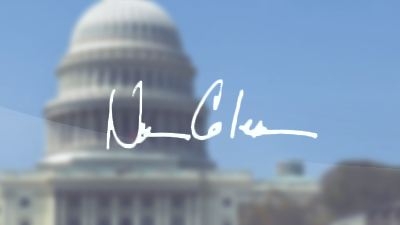Notes from Norm: The Kids Are All Right
I’m both a friend and a fan of Peggy Noonan. She is an accomplished writer who has authored some of the most powerful speeches ever spoken. Someone who has written insightful articles for the Wall Street Journal that have deftly articulated the challenges and opportunities of living in the greatest nation the world has ever known.
Yet, in a recent article for the Wall Street Journal titled “That moment when 2016 hits you” I find myself struggling to reconcile Noonan’s world view of the 2016 Presidential Campaign with my normally optimistic perspective about the future.
Her beginning paragraph was particularly jarring:
“The Moment is that sliver of time in which you fully realize something epochal is happening in politics, that there has never been a presidential year like 2016, and suddenly you are aware of it in a new, true and personal way. It tends to involve a poignant sense of dislocation, a knowledge that our politics have changed and won’t be going back.”
For the rest of her article I kept coming back to that paragraph. Particularly the line, “…a poignant sense of dislocation, a knowledge that our politics have changed and won’t be going back.”
I wondered if that was true. More importantly, perhaps, I wondered if that really mattered.
As luck would have it this weekend I found myself having an opportunity to ask others if it was true and if it really mattered.
Joining my 30-year-old son, Jacob, and a handful of his late 20 to early 30 something friends for dinner this weekend gave me a chance to listen to their perspectives about this year’s election and to quiz them about their perspectives on its meaning in their life today and their future life.
Along with my wife, Laurie, and a few other friends, we began a several hour dinner conversation that touched on one topic after another about the impact of the 2016 Presidential election on their individual lives and how they thought it might impact their generation as a whole for the future.
It was at this dinner, inside of a St. Paul, Minnesota institution, Mancini’s Steakhouse, surrounded by the history of generations before them, I listened to young men and women articulate a very different view of their world that Noonan sees from her eyes.
Steps away from my 1993 campaign office that was ground zero for my first successful election to the Office of Mayor of St. Paul, it occurred to me just how long ago that was and how much things have changed.
Seated across from me were young people expressing their frustration at the polarization in today’s political process. A belief that stagnation has occurred in our body politic and government because people are more concerned about being right than they are about getting things done.
They reject the notion that the greatest force for change in their lives is government. In fact, it is their belief that government is more likely an obstacle to change than it is a catalyst for change.
The institutional forces of political parties in America is also of dubious value in their minds. The systems are too complex of questionable value to be relevant in their lives.
Government and politics are not high on their list of personal engagement.
Instead, they are more likely to get involved in a charitable cause, a non-governmental organization or a community organizing activity as a way to change the world around them.
They find themselves rejecting precinct caucuses or political conventions with their arcane rules and regulations and assorted elements of personal and ideological drama.
When asked how important government was in their lives, or what impact politics had in their day to day life, it became clear that government has become so marginalized in their minds to be little more than an impediment to their future.
And, politics, from their perspective, resembles an ideological horseshoe – extremes on both the left and the right controlling the debate and the dialogue and the vast middle of America being held hostage to their increasingly bitter battles.
What become most clear, however, is that none of them shared the perspective that Noonan articulated which posits that American life has somehow or another become so dislocated as to leave the vast majority of America disoriented.
In fact, to a person, each of them believed that their future was nowhere near as dire as many have proclaimed it to be, including those running for President from both political parties.
It became clearer and clearer to me that the values that Noonan and I and others of my generation have found to be important to the future of this nation are not less important but that the process and institutions we harnessed to promote them are no longer as valuable to my son’s generation.
As we ended dinner and began to go our separate ways I realized that between my generation and my son’s generation have been at least one or two other generations who likely have seen a gradual decay of confidence in the institutions many of us now see as crumbling.
It didn’t just happen. It’s been a process. And, it’s not new.
In my lifetime my parents saw the crumbling of institutions they had believed to be permanent. The generation of the 1960s proved them wrong. And, each succeeding generation has proven the generation before them wrong about the permanency of the world order they had inherited.
I don’t know what the future holds for my son and his friend’s generation. But this much is certain. They are as confident that they will make their future meaningful and impactful in ways that I know my generation felt when we were their age.
They just aren’t committed to preserving the institutions of previous generations as the prerequisite to their prosperous and promising future.
But they are committed to their future being the end result of their efforts and molded in their likeness.
Just like every generation before them.
Just like every generation after them.
The kids are all right.


